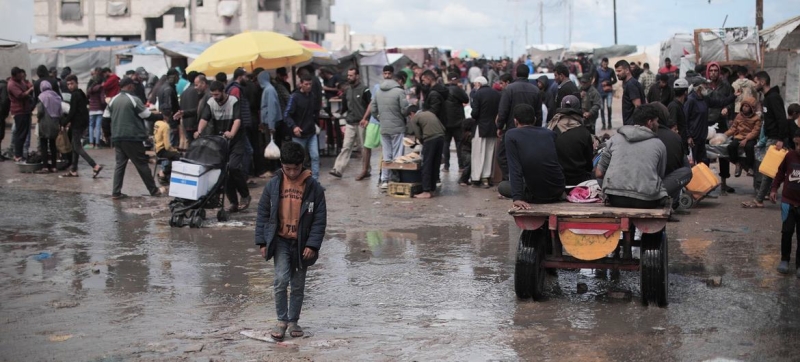
Any attack on Rafah would likely result in widespread civilian casualties. Gaza: Rafah evacuation routes unsafe, UN warns Peace and security
Amid reports that 100,000 Palestinians have been ordered to leave Rafah ahead of an expected Israeli military operation, U.N. aid agencies stressed Monday that they will continue their work in Gaza’s southernmost city.
“The Israeli offensive on Rafah will mean even more suffering and death among the civilian population. The consequences will be devastating for 1.4 million people, the UN agency for Palestine Refugees (UNRWA) said on platform X. “UNRWA is not evacuating: the agency will maintain a presence in Rafah as long as possible and continue to provide life-saving assistance to people.”
Children on the brink of survival
In turn, the UN Children’s Fund (UNICEF) warned that a military siege of Rafah and a ground invasion of it would create catastrophic risks for the 600 thousand children sheltering there.
Many are “very vulnerable and on the brink of survival,” UNICEF said in a statement. The Foundation highlighted the increase in violence in Rafah and the fact that “evacuation routes are likely to be mined or littered with unexploded ordnance.”
Any offensive on Rafah would likely result in numerous civilian casualties, as well as the destruction of the remaining infrastructure, UNICEF noted.
Read also:
War in Gaza: attack on Rafah could turn into “massacre”
“Hundreds of thousands of children huddled in Rafah are injured and are sick, lacking food, injured or living with disabilities,” said UNICEF Executive Director Catherine Russell.
“Many have been forced to flee several times already, they have lost their home, parents and loved ones,” she added. Russell called for the protection of children, medical facilities and shelters.
Mass famine
Head of the UN World Food Program (WFP) Cindy McCain stressed that the population of northern Gaza is currently experiencing “full-scale famine,” which also threatens the south of the enclave.
“Israeli authorities continue to deny the UN humanitarian access,” said UNRWA Commissioner-General Philippe Lazzarini. “In the last two weeks alone, we have recorded 10 incidents involving the shooting of convoys and the arrest of UN staff, which was accompanied by abuse, stripping, threats with weapons and long delays at checkpoints, which forced the convoys to move in dark time of day or interrupt your work.”
The head of UNRWA also condemned the rocket attacks at the Kerem Shalom crossing, which reportedly killed three Israeli soldiers. The crossing, which is a key entry point for humanitarian aid, has been closed.
No safe zones
Media reports , the Israeli military is dropping leaflets over eastern Rafah, urging the population to move to the so-called Al-Mawasi safe zone, located on the Mediterranean coast west of the city. UN humanitarian workers have previously said similar Israeli military evacuation initiatives are unacceptable because they constitute forced displacement.
“Al-Mawasi is severely lacking essential infrastructure, including water supply, and it is impossible to support the tens of thousands of displaced people there,” said Louise Waterage, UNRWA spokeswoman in Gaza.
According to UN estimates, more than 400 thousand people from the nearby city of Khan Yunis have already found refuge in the coastal zone. To help them, UNRWA is providing medical assistance in Al-Mawasi.
Since October 7, at least 34,680 Palestinians have died in Gaza, including more than 14,000 children, and more than 78,000 people were injured, according to the enclave’s health authorities. Some 1,250 people were killed and more than 250 were taken hostage in Hamas attacks in Israeli communities.
“Inhumane” evacuation order
UN High Commissioner for Human Rights Volker Türk warned on Monday that the death, suffering and destruction will exceed already prohibitive levels after the evacuation order from eastern Rafah is ordered.
“This is inhumane. This is contrary to the basic principles of international humanitarian and human rights law, the primary objective of which is the effective protection of civilians,” Turk said.
The forced displacement of hundreds of thousands of people from Rafah to areas that have already been destroyed, where there is little housing and virtually no access to necessary humanitarian assistance, is unthinkable. New attacks on the city, which is the main humanitarian center in the entire Gaza Strip, will not solve anything, the High Commissioner added.
